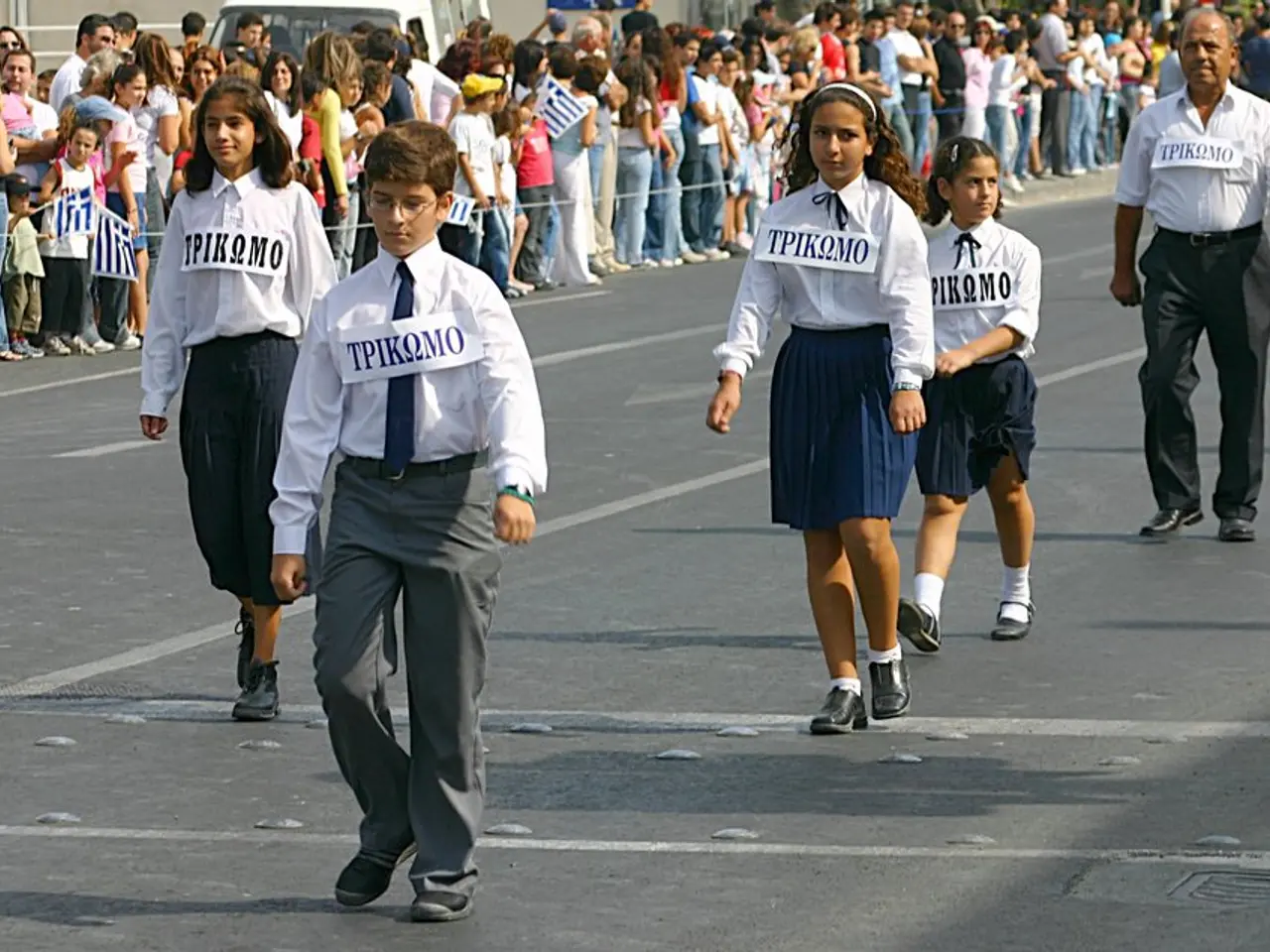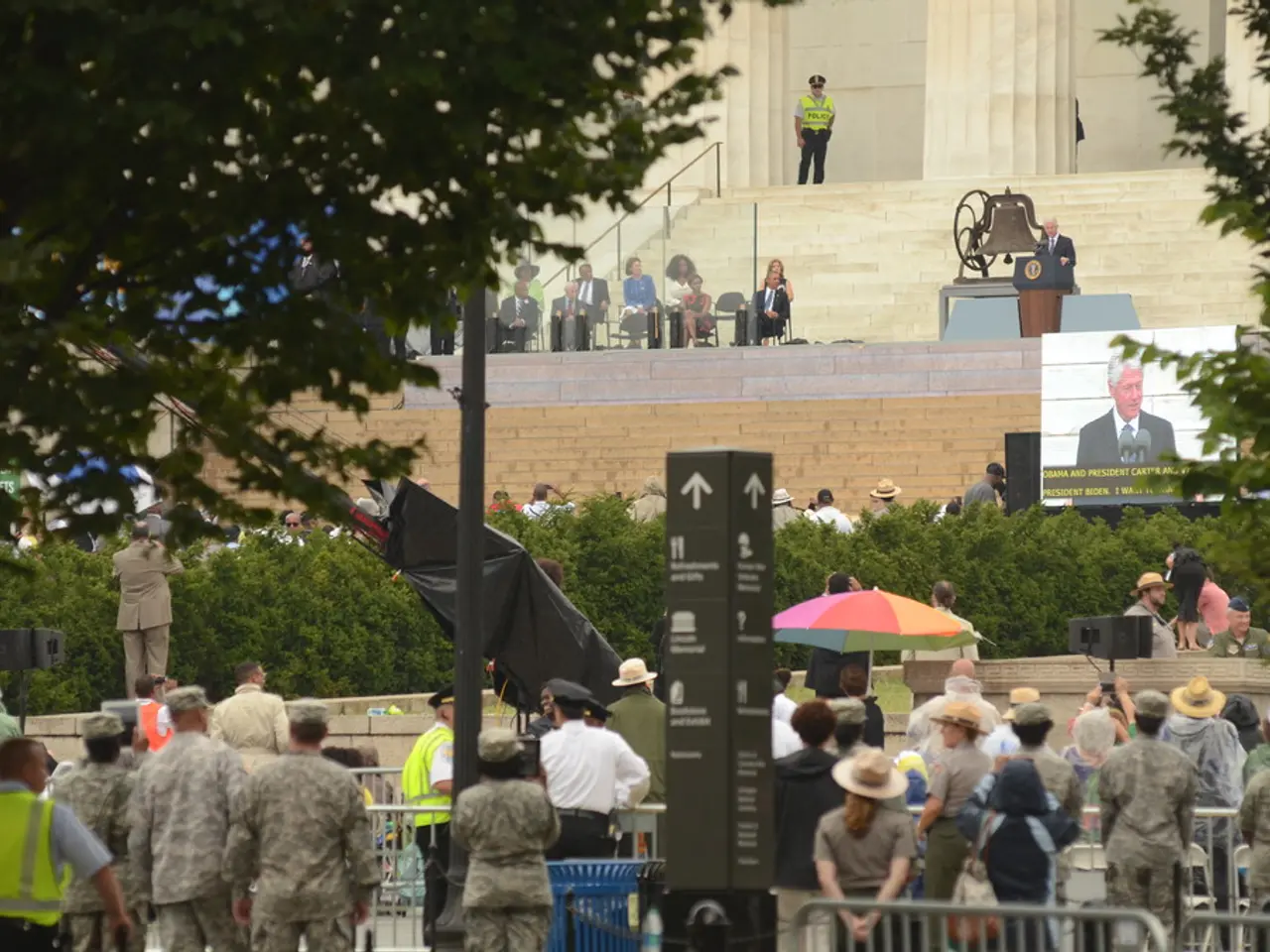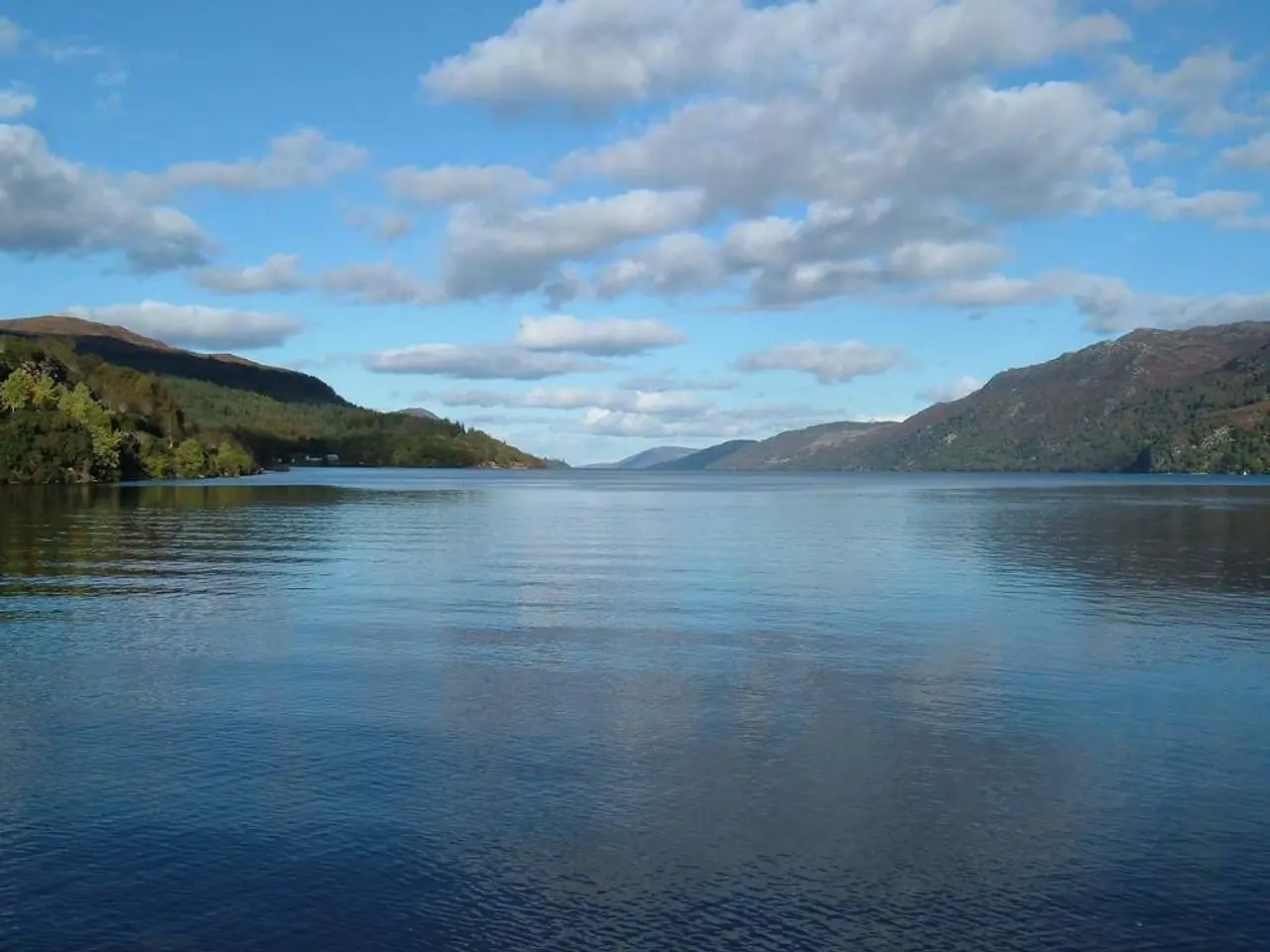Tehran's Mixed Feelings on Israel-Iran Ceasefire: A Pragmatic Perspective
Tehran residents' perspectives on the truce - Tehran Residents' Perspectives on the Ceasefire Agreement
The folks in the bustling city of Tehran are showing signs of relief, albeit guardedly, as they face the temporary lull in the raging conflict. Yet, many view this as more than just a ceasefire—for some, it's a shattered dream of change.
Take retired teacher Sudabeh, for instance, who says, "The Islamic regime is a pain, no argument there. But that Israeli attack? That was the end of the world. I'm just glad to be back in this nightmare, sleeping peacefully without the sound of rockets anymore."
For real estate agent Dschahangir, 47, there was a sliver of hope that "the attacks would make a difference," transforming Iran into a land free of the ruling Islamic clerics. "But apparently, the world prefers a weak Iran to a free one," he laments disheartedly.
23-year-old student Mina shares the sentiment, sadly acknowledging that "this was our best chance to get rid of this outdated regime, but they only weakened it. The people will suffer again from the economic repercussions."
Katajun, another student, expresses her frustration with the Iranian opposition abroad. "They didn't deliver. They sit 'over there' and tell us to 'take to the streets and fight the regime,' while Israel is bombing (...). No wonder the regime doesn't take them seriously... from now on, we won't either."
State-sanctioned celebrations ensued after the ceasefire announcement, attracting supporters of the government to express their solidarity with the armed forces. Reportedly, Iranian flags and pro-regime banners were hoisted, indicating continued support for the political leadership in Tehran.
Many Tehran residents avoided the city out of fear of attacks, fleeing towards the Caspian Sea, smaller towns, or borders. Supermarkets ran out of stocks, and power and water outages were common. Most offices are still shut, and a large wave of return has yet to sweep the city.
- Tehran
- Iran
- Israel
- Ceasefire
- Fighting
Perspectives from the Iranian Public
- Cautious Optimism and the Desire for Stability Many ordinary Tehran citizens—focused on everyday economic and social challenges—view any ceasefire or de-escalation in tensions as a positive step towards normalcy and security. Peace or at least a reduction in overt hostilities is seen as a step in the right direction, even if temporary.
- Skepticism and Doubts Despite relief, a substantial portion of the population remains skeptical about the sincerity and longevity of ceasefires given decades of hostility and mutual distrust. The history of covert confrontations, proxy wars, and propaganda on both sides fuels doubts that peace agreements will hold or lead to meaningful cooperation.
- National Pride and Pragmatism Some segments prioritize national pride and support Iran’s stance against Israel due to ideological, religious, or political convictions promoted by Iran’s leadership. However, even among these groups, there is a pragmatic understanding that open conflict is costly and unsustainable, making ceasefires a necessary tactical pause.
Glimmers of Hope for Political Change in Iran
- Yearning for Reform Many Iranians, particularly the youth and urban middle class in Tehran, harbor a strong desire for political reform, greater personal freedoms, and more open engagement with the international community. These individuals view the current leadership as outdated and unyielding to necessary change.
- Cautious Optimism and Uncertainty There is cautious optimism among some that sustained internal pressures—economic hardship, social movements, and generational change—might eventually lead to leadership transitions or reforms. However, many remain uncertain about the timeline or nature of such change due to the regime’s control over political processes and security apparatus.
- Fear of Instability Others worry that rapid or forced change could lead to instability or conflict within Iran, potentially causing harm to ordinary citizens. This concern sometimes leads to support for gradual change or maintaining the status quo as the safer option.
- International Relations' Impact The public closely follows international relations—such as ceasefires, sanctions, or diplomatic efforts—to gauge their potential influence on internal politics. Many hope that reduced tensions with countries like Israel or the West could open space for reforms, but others fear external interference might provoke a nationalist backlash.
- The European Union, adhering to the UN Charter's principles, might observe the ceasefire between Israel and Iran with keen interest, as it represents a significant shift in the region's war-and-conflicts landscape.
- Amidst Tehran's general news headlines, discussions on political implications of the ceasefire between Israel and Iran could come to the fore, as the public attempts to understand the potential ramifications on local and international politics, particularly in relation to the governing regime in Iran.







